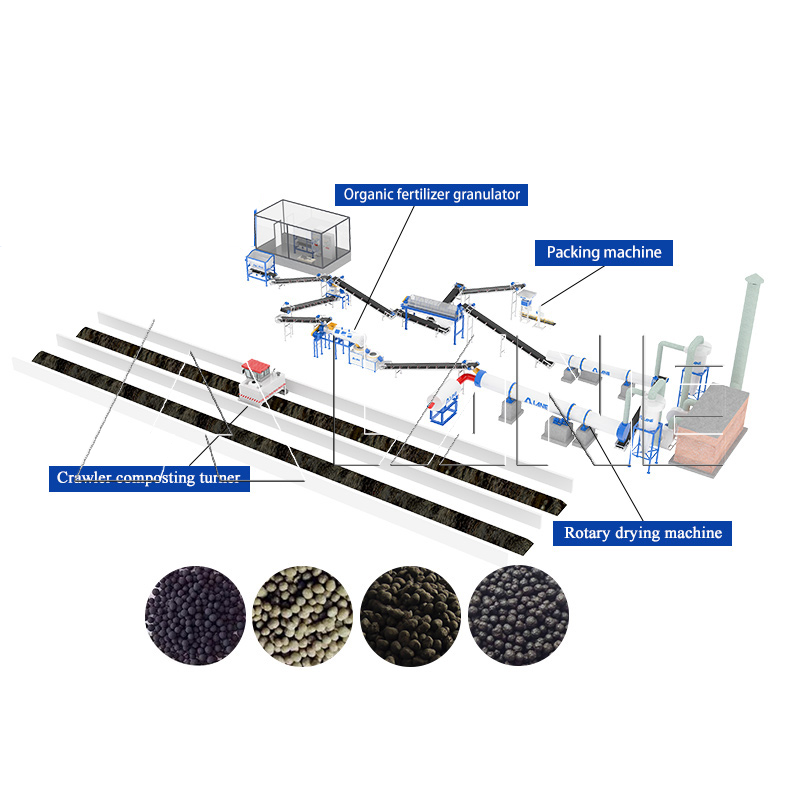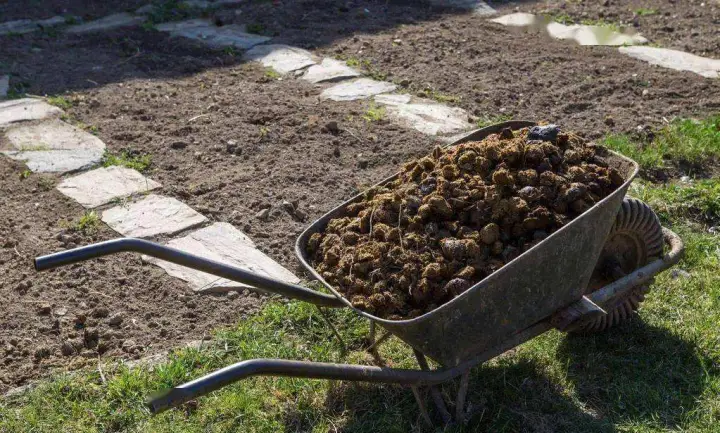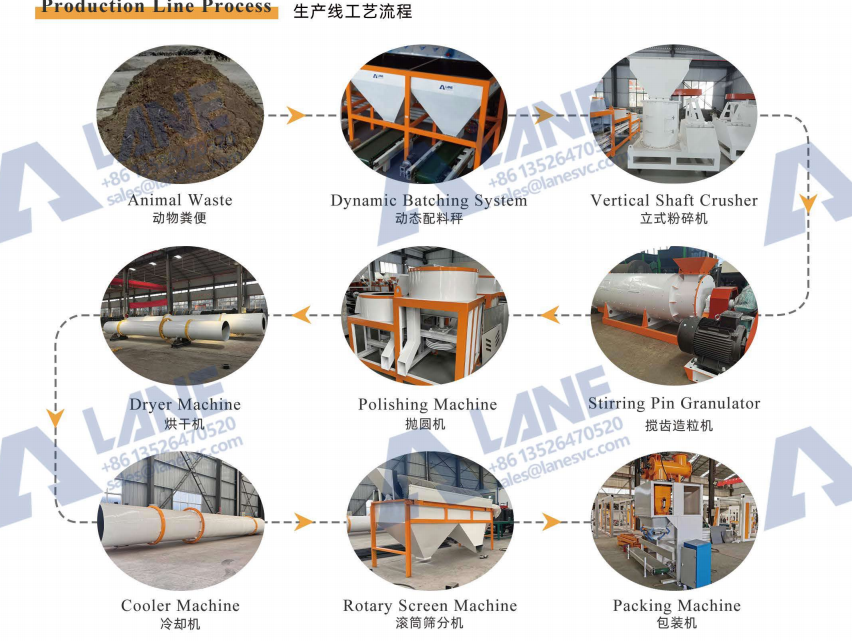In the modern agricultural landscape, the livestock manure organic fertilizer production line has emerged as a vital link between livestock farming and sustainable crop cultivation. As the global demand for organic products rises and environmental regulations tighten, this production line offers a practical way to turn problematic livestock waste into a valuable resource. Let’s explore how it works, its benefits, and why it’s becoming a must-have for forward-thinking farmers and enterprises.

1.The Core Role of Livestock Manure Organic Fertilizer Production Line
Livestock farming generates massive amounts of manure every day. If left unprocessed, this waste can pollute soil, water, and air, leading to unpleasant odors and the spread of diseases. The livestock manure organic fertilizer production line steps in to solve this problem. It transforms raw manure into high-quality organic fertilizer through a series of scientific processes, closing the loop of agricultural waste recycling.
This production line is not only a tool for handling waste but also a bridge to ecological agriculture. It converts manure into fertilizer, reducing the reliance on chemical fertilizers, which, when used over a long period, often cause damage to soil health. Instead, it provides natural nutrients for crops, improves soil structure, and enhances the long-term productivity of agriculture.

2.Key Stages in the Livestock manure organic fertilizer production line
The livestock manure organic fertilizer production line transforms animal waste into usable fertilizer through a sequential process.
(1) Raw Material & Initial Prep
Animal waste serves as the base. It first goes to the dynamic batching system, which mixes the waste with additives (like straw) in precise amounts. Correct proportions here ensure efficient follow – up fermentation.
(2) Crushing & Granulation
The mixture moves to the vertical shaft crusher, breaking it into smaller particles to boost surface area for better decomposition. Then, the stirring pin granulator shapes these into granules—easier to store, transport, and apply, with uniform size for steady nutrient release.
(3) Polishing, Drying & Cooling
After granulation, the polishing machine smooths granules for durability and better flow. Next, the dryer machine lowers moisture to prevent clumping or early decomposition. The cooler machine then cools granules, making them durable and ready for subsequent steps.
(4) Screening & Packaging
The rotary screen machine separates qualified granules by size, ensuring consistent field performance. Finally, the packing machine places granules into containers, prepping them for storage, transport, and sale—protected from moisture and contamination.

Each stage in the livestock manure organic fertilizer production line ensures waste becomes high – quality fertilizer, key to sustainable farming.
3.Why Choose a Livestock Manure Organic Fertilizer Production Line?
Investing in a livestock manure organic fertilizer production line brings multiple benefits for both farmers and the environment. For livestock farms, it turns a costly waste problem into a new revenue stream. The organic fertilizer produced can be sold to crop farmers, gardeners, or landscaping companies, adding to the farm’s income.
Environmentally, the livestock manure organic fertilizer production line significantly reduces greenhouse gas emissions from rotting manure. It also prevents nutrient runoff into rivers and lakes, which causes algal blooms and dead zones. By replacing chemical fertilizers with organic ones from this production line, farms can improve soil fertility over time, as organic matter enhances soil’s ability to retain water and nutrients.
4.Future Trends of Livestock Manure Organic Fertilizer Production Line
As technology advances, the livestock manure organic fertilizer production line is becoming more efficient and intelligent. New systems integrate sensors and automation to monitor fermentation temperatures, adjust moisture levels, and control processing speeds, reducing labor costs and improving consistency.
There’s also a growing focus on integrating the livestock manure organic fertilizer production line with other renewable energy systems. For example, biogas can be produced from manure during the fermentation process, providing energy for the farm or production line itself, creating a fully circular agricultural system.
In conclusion, the livestock manure organic fertilizer production line is more than just a waste treatment solution—it’s a cornerstone of sustainable agriculture. By turning livestock manure into nutrient-dense organic fertilizer, it addresses environmental concerns, boosts farm profitability, and supports healthier crop growth. As the world moves toward greener farming practices, the role of this production line will only become more important. Whether you’re a large livestock enterprise or a small family farm, investing in a livestock manure organic fertilizer production line is a step toward a more sustainable and profitable future.
For more details, please feel free to contact us.
Henan Lane Heavy Industry Machinery Technology Co., Ltd.
Email: sales@lanesvc.com
Contact number: +86 13526470520
Whatsapp: +86 13526470520